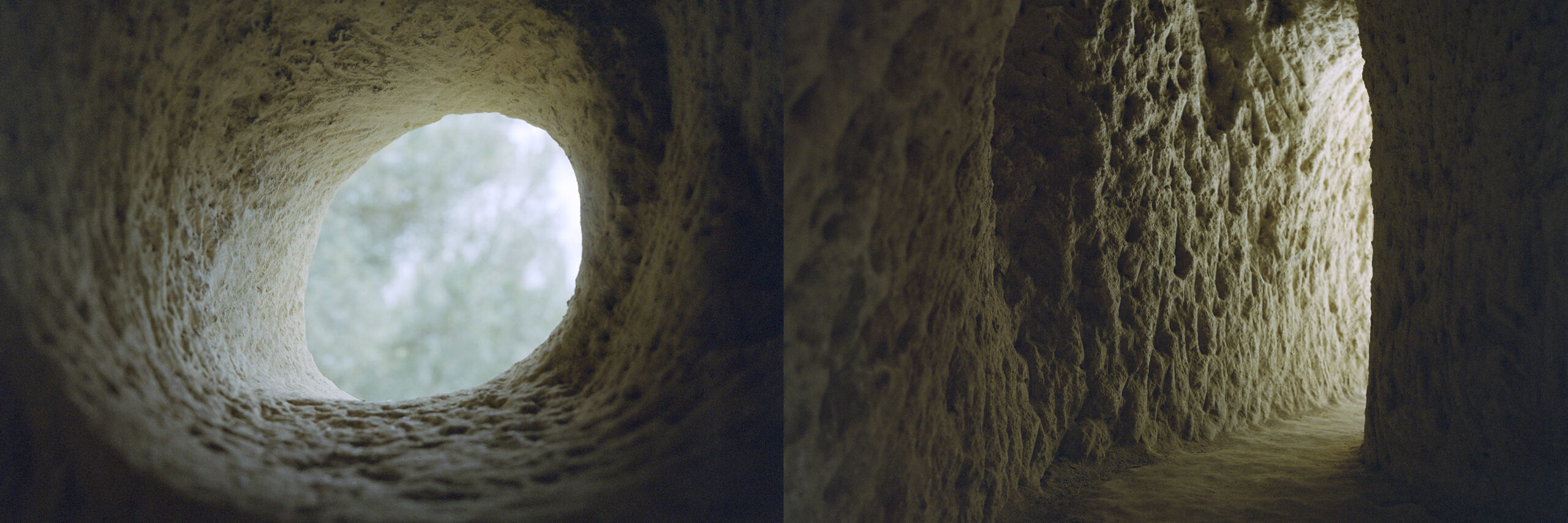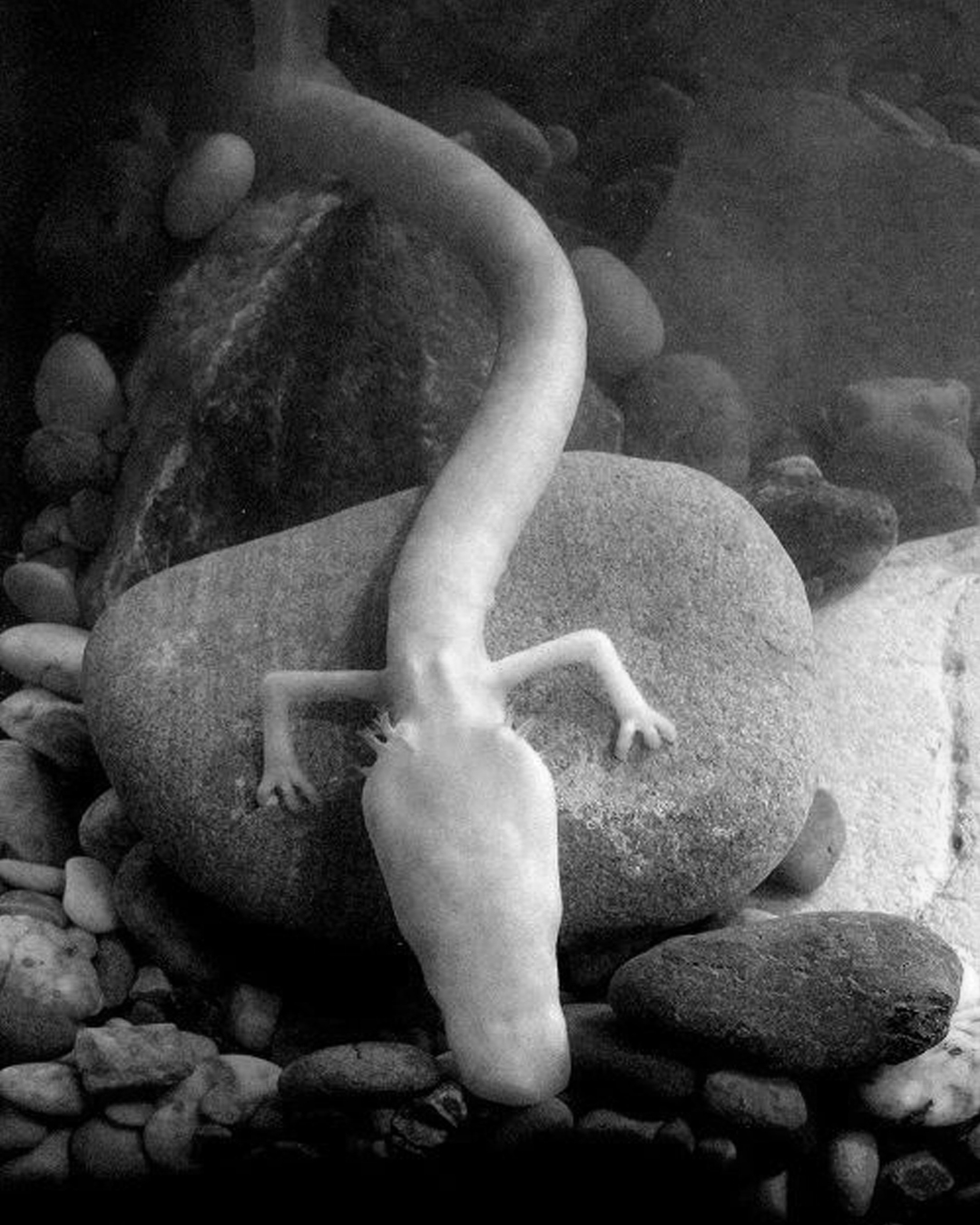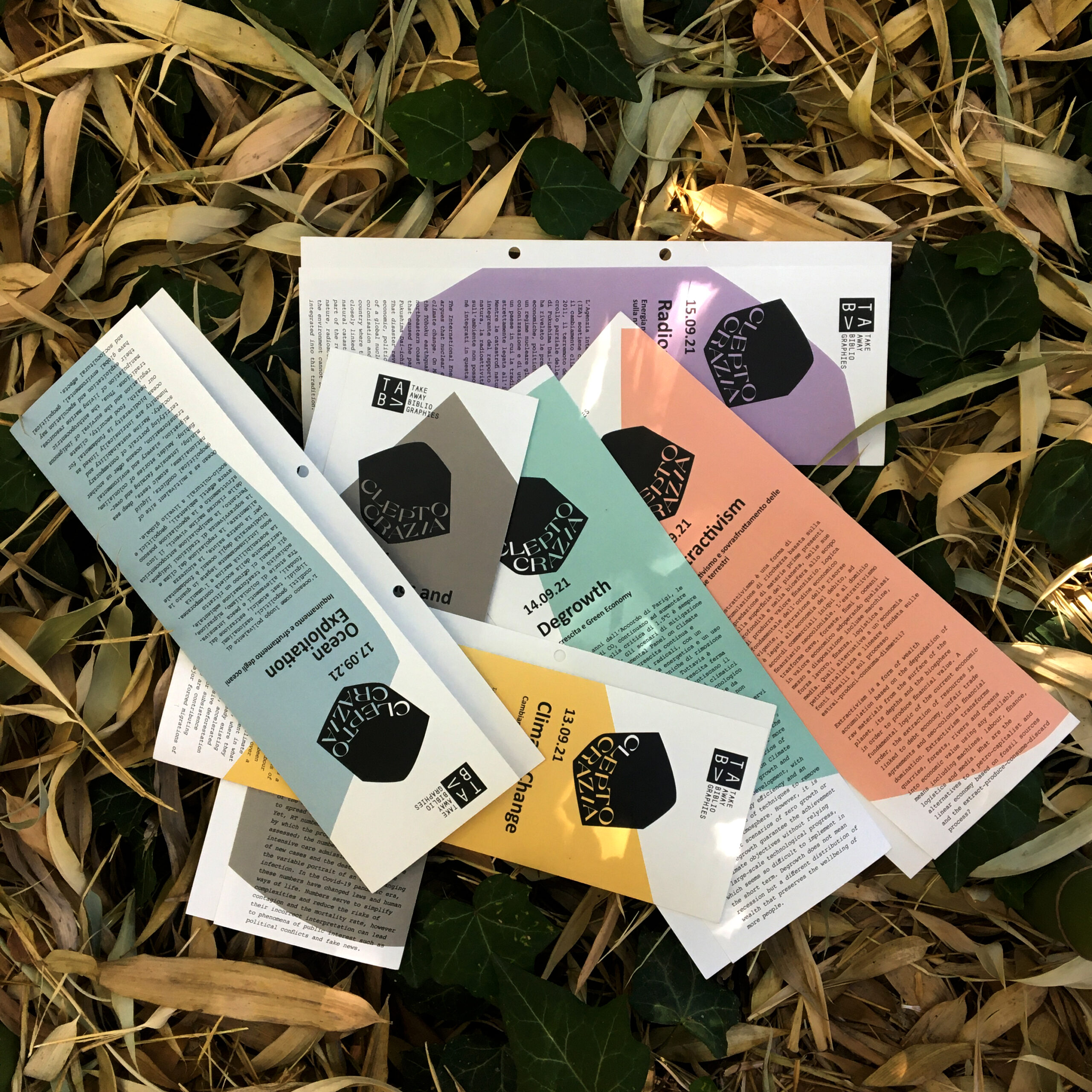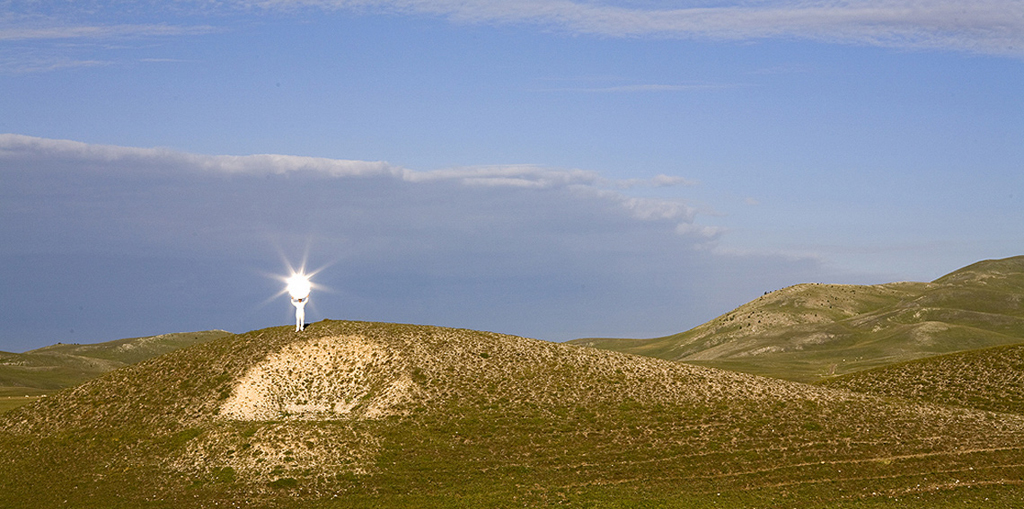Open Call 2025
DIALOGUES FROM THE UNDERGROUND
IN COLLABORATION WITH POLLINARIA AND TAB | TAKE AWAY BIBLIOGRAPHIES
Video Sound Art launches a new Open Call ahead of the 15th edition of the Festival, which will take place in Milan in November 2025. Since 2011, VSA has supported annual paths of artistic research and production through a residency program that fosters dialogue among researchers, artists, scholars, craftspeople, industry experts, and the festival’s curatorial team.
In line with the festival’s themes, the 2025 Open Call, titled Dialogues from the Underground, invites artists, creatives, and researchers to take part in a residency dedicated to exploring the underground—understood both as a symbolic and physical space.
The program will unfold through interdisciplinary practices combining theory, visual arts, sound, and performance. The residency is not aimed at the production of a finished work, but rather offers an opportunity for in-depth research and exchange, supported by a study grant, accommodation, and moments of dialogue with guests from various fields.
The outcomes of the residency will be presented as part of the public program of the 15th edition of the festival.

The research will follow two main directions. One will focus on issues related to land use, responsible production and consumption, and the development of sustainable, non-extractive relationships with the environment. The other will explore the meaning of inhabiting the underground—whether natural or artificial—through the lens of different cultural interpretations.
The cavities of the earth have historically held opposing meanings: on the one hand, as welcoming and protective spaces linked to the origins of the world and proximity to cosmic forces; on the other, as dark and threatening places, symbols of loss, misery, and oblivion.
Here, we aim to consider the hypogean environment as a space of transition—from light to shadow—a threshold that contains the potential of its extremes: emptiness and fullness, heaviness and lightness, matter and the intangible.
We attempt to define the human being not through alterity but through inclusion—as part of nature, blended with the substance of the world. As architect Francesco Venezia writes, “the underground world, which better than any other expresses a fundamental condition of reference for human beings, is, in memory, an original perception of building. Each of us, when thinking of a first form of construction, thinks of digging.”[1]
[1] Adriano Dessì: Divina Acqua. Il rito della discesa nell’Architettura del Pozzo. Trasposizioni semantiche nelle opere di Francesco Venezia e Aldo Rossi (FAE edizioni, 2011).

THE RESIDENCY (7 – 12 August 2025)
The winners of the Open Call will be hosted at Pollinaria, a farm and research center active since 2007 in the Abruzzo region, across the areas of Loreto Aprutino, Penne, and Civitella Casanova. Pollinaria supports projects that integrate art, agriculture, and the environment, offering a fertile ground for experimentation and critical reflection.
A key component of this research project will be the editorial and research methodology of TAB | Take Away Bibliographies, which collects and shares bibliographies in the form of zines. This is conceived as a collective practice of nonlinear and non-productive knowledge-making, drawing on textual and multimedia sources, preferably open access.
During the residency, based on materials proposed by the participants and guest contributors—curators, researchers, and artists—the working group will be invited to organize spaces for informal, open, and horizontal learning. Activities will include collective readings, listening and screening sessions, and other shared practices, embracing both scientific thinking and intuitive insight.
THE WINNER
Tuning for Relationships. Pratiche di speleologia somatica by Sofia Salvatori

Discover the winning project
Drawing inspiration from cave-dwelling organisms and the dark landscapes of the underground, Sofia Salvatori envisions new ways of relating to what surrounds us. Her research weaves together somatic practices, biospeleological study, and speculative fabulation, in order to explore the invisible space of the “other” and challenge the sensory frameworks that shape our everyday perception.
By immersing herself in the margins – biological, sensorial, symbolic – the project invites us to develop “tactile bristles,” imaginary tools capable of amplifying our listening and opening new channels of contact. The experience of darkness and interiority thus becomes fertile ground for activating a process of unlearning, in which the body reclaims silent, slow, and embodied forms of knowledge.
“Humans are tuned for relationship. The eyes, the skin, the tongue, ears, and nostrils—all are gates where our body receives the nourishment of otherness.”
— David Abram, The Spell of the Sensuous
As David Abram reminds us in The Spell of the Sensuous, our humanity can only be defined through contact and shared experience with what is other than ourselves. To define and orient ourselves in the world means, first and foremost, to step outside ourselves — to open up through direct sensory experience that moves both outward and inward. For this reason, altering our habitual perception and sensory structure becomes essential to restoring a reality rooted in reciprocity, one that transcends the boundaries reinforced by social norms, taboos, and, above all, by shared language. It is through the body that we can resist enculturation, and reclaim qualities such as attention, sensitivity, and patience — fundamental capacities we often suppress or unlearn.
I came to this awareness in 2022, when, for the first time, I descended into the underground.
Sofia Salvatori
TAB | Take Away Bibliographies is an editorial and research project dedicated to the creation, collection, and sharing of bibliographies. TAB aims to disseminate, promote, and encourage research practices as everyday activities; its ultimate goal is to both deconstruct and embrace contemporary complexity.
Bibliographies, often used in academic contexts as scientific justifications to support our theses, serve as both evidence and alibi for our claims. In TAB, bibliographies are transformed into tools capable of sparking reflection and debate.
The act of creating and sharing bibliographic lists is conceived as one of presence, resistance, and existence—a way to open ourselves to the Other.

Pollinaria is a farm active in Abruzzo since the 19th century and an arts organization that, since 2007, has hosted research programs at the intersection of art, agriculture, and science.
Offering opportunities for experimentation both within its own land—approximately 130 hectares of protected wildlife and forest area where cultivated fields alternate with pastures and natural woodlands—and in the surrounding region, Pollinaria fosters exchange and collaboration with local communities. It places particular emphasis on rediscovering the cultural heritage of Abruzzo and on nurturing themes rooted in ecology, contemporary rurality, and myth as a tool for knowledge.
Over the years, the organization has hosted projects by international artists such as Fritz Haeg, Agnes Meyer-Brandis, Futurefarmers, Hehe, Etoy, Nikola Uzunovski, and Mira Calix, among others.

How to apply
Research proposals may be presented in both textual and visual form and should emerge from a critical reflection on the theme. The call aims to stimulate inquiry into soil and subsoil, understood as both symbolic and physical spaces.
To apply, send your proposal to opencall@videosoundart.com, specifying “Application Open Call 2025” in the subject line.
The email must include a PDF file containing the following mandatory elements:
- Research abstract (max 5,400 characters, spaces included)
- Short bio (max 1,000 characters, spaces included)
- Research bibliography (up to 6 references)
The bibliography should include textual and multimedia sources (e.g., audiovisual works, podcasts, websites), preferably open access. It is intended not only to contextualize the research abstract, but also to function as a shared tool for knowledge exchange among residency participants.
The email must also include the applicant’s personal details and a phone number. To avoid transmission errors, please ensure that the attachment does not exceed 2MB in size.
Optionally, the document may include visual elements such as images, drawings, graphics, etc. (up to 3 pages).
Selection Criteria and Awards
Proposals will be evaluated based on the following criteria:
- Relevance to the theme of the call
- Clarity of presentation
Research projects that can be publicly shared through participatory dissemination methods will be positively evaluated. Examples include sharing the research during the festival’s public program through workshops, screenings, listening sessions, or other forms of participatory exchange.
Winners will receive a prize of €600 as an invitation to continue their research, plus coverage of travel and accommodation expenses.
The call’s timeline includes the following phases:
a. Submission of abstracts by 8 July 2025
b. Selection of winners by 18 July 2025
c. Residency period at Pollinaria (Abruzzo) from 7 to 12 August 2025
d. Presentation of the research during the 15th edition of the Video Sound Art Festival in Milan, November 2025
e. Co-curation of the fanzine published and produced by Video Sound Art and TAB | Take Away Bibliographies, including texts and a bibliographic selection created by the participants
The jury
Simone Ciglia (Pescara, Italy, 1982) is an art historian, curator, critic, currently serving as a Career Instructor in the Department of the History of Art and Architecture at the University of Oregon. His areas of research focus on marginal spaces within contemporary art, with a particular emphasis on its intersections with agriculture, craft, and utopian/dystopian impulses. He works as a correspondent for Flash Art magazine, and writes for a variety of publications, including Treccani and Zanichelli. He has curated exhibitions internationally, including most recently the 75th Edition of the Michetti Prize, Pesaro Capitale Italiana della Cultura, Fondazione Malvina Menegaz, Fondazione La Rocca, and 16th Quadriennale di Roma. He has also taught at the Academy of Fine Arts in Urbino, Italy, and served as an Assistant Researcher at the MAXXI – National Museum of 21st Century Arts in Rome. He holds a Ph.D. in the History of Contemporary Art from the Sapienza University of Rome.
Francesca Colasante is an art historian, independent curator, and event organizer. She graduated in Art History from the Faculty of Arts and Humanities at the University of Bologna. She has collaborated with European contemporary art museums and the Edinburgh Fringe Festival. From 2003 to 2006, she was curator of the Visual and Multimedia Arts section at PEAM – Pescara Electronic Artists Meeting. She has worked as a freelance consultant for corporate promotion events and was coordinator for the Europe Direct Centre of the Province of Chieti in the fields of Communication and EU Project Design (2008–2009). She served as organizational manager for the Slovenian Exhibition Centre in Venice, overseeing scientific coordination and exhibition setups for various editions of the Biennale, Slovenia Pavilion, and also curated her own projects at the same Centre (2004–2010).
Since 2005, she has been teaching Contemporary Art and Art Management at the Curatorial Practices Course in Venice and is a visiting lecturer in university courses (IUAV, Ca’ Foscari). Since 2010, she has been part of the team at Palazzo Grassi – Punta della Dogana – Pinault Collection in Venice, working on exhibition production and coordinating the Public Programs at the Teatrino.
Anna Toscano lives in Venice, where she teaches Italian Language and Italian for the Web at Ca’ Foscari University. She collaborates with other Italian and international universities, writing schools, libraries, bookstores, and cultural festivals. She serves on the scientific board of the journal Balthazar and was a member of the board of the Italian Society of Women Writers (SIL). A writer and photographer, she has published poetry collections, short stories, essays, articles, and travel guides. Her most recent poetry collection is Cartografie (Samuele Editore – pordenonelegge, 2024). A central part of her work focuses on the study and narration of female authors and artists, as seen in the volumes Il calendario non mi segue. Goliarda Sapienza, Con amore e con amicizia. Lisetta Carmi (Electa, 2023), and in the anthologies Chiamami col mio nome (vol. I and II). She has written about her city in 111 Places in Venice You Must Not Miss (with Gianni Montieri, 2023) and in The Passenger – Venice (2023). She contributes to several cultural magazines and journals, including minima&moralia, Doppiozero, Leggendaria, Artribune, and Il Sole 24 Ore. Her photographs have appeared in travel guides, book covers, advertising campaigns, posters, music videos, as well as solo and group exhibitions. She has also taken part in theatrical and radio projects. In 2017, she was awarded the Natura Donna Impresa Prize. She loves to travel, observe, and tell stories: she photographs words and gives words to images, in Venice and around the world.
Chiara Vacirca (Prato, 1992) is an independent curator and precarious researcher. She holds a PhD in Human and Social Sciences from the University of Salento, where she conducted research on post-Xylella ecological transition, exploring the intersections of political ecology, eco-feminism, and critical environmental studies. She is currently a Research Fellow at the University of Molise, focusing on the eco-social sustainability of wool production in inner rural areas. An activist in cultural programming, she works as a grant writer for artistic and non-profit organizations, developing projects that weave together art, ecology, and community engagement. She co-founded TAB | Take Away Bibliographies, a project combining bibliographic research, publishing, and visual arts, and collaborated from 2019 to 2021 with Casa delle Agriculture (Salento), promoting rural regeneration and the valorization of agro-biodiversity. She was also part of the Epidemia research collective, engaged in dialogues between art, science, and social movements.
Bibliography
R. Krauss, Sculpture in the expanded field. October, 8, 30–44, 1979
S. Spaid, Green Acres: Artists Farming Fields, Greenhouses and Abandoned Lots, Cincinnati, Contemporary Arts Center, 2012
A. M. Weintraub, How to Imagine: A Narrative on Art and Agriculture, Houston, Foundation for Horticultural Innovation, 1983
selection by Simone Ciglia
S. Ciglia (a cura di), Il campo espanso. Arte e agricoltura in Italia dagli anni Sessanta a oggi, Roma, CREA – Consiglio per la ricerca in agricoltura e l’analisi dell’economia agraria, 2015.
E. Coccia, COMP(H)OST #5 – Metamorfosi. Siamo tutti la stessa vita, conferenza al Teatro del Castello di Rivoli, Museo d’Arte Contemporanea, 15 febbraio 2020. URL: urly.it/319x5r
E. Coccia, Metamorfosi. Siamo un’unica, sola vita, Einaudi, Torino, 2022
L. Daston, Contro natura, Timeo, Palermo, 2024
A. Dessì, Divina Acqua. Il rito della discesa nell’Architettura del Pozzo. Trasposizioni semantiche nelle opere di Francesco Venezia e Aldo Rossi, FAE Edizioni, 2011. URL: https://famagazine.it/index.php/famagazine/article/view/712/1954
M. Faber, Sotto la pelle, Einaudi, Torino, 2004
iosonouncane, SACRAMENTO, in Qui noi cadiamo verso il fondo gelido – Concerti 2021–22, video su YouTube. Le immagini in super8 dei bambini di Buggerru sono tratte da Buggerru a scuola nel 1953 di Tonino Casula. URL: https://youtu.be/NcFgx4yVmGw
T. Pievani, Imperfezione. Una storia naturale, Raffaello Cortina Editore, Milano, 2019
selection by Francesca Colasante
M. Gimbutas, Le dee viventi, a cura di M. Robbins Dexter, trad. di M. Doni, Milano, Venezia, 2005.
E. Brum, Amazzonia. Viaggio al centro del mondo, Palermo, Sellerio, 2023.
S. Saladino, Pensa come una pianta, prefazione di O. Persico, Trèfoglie, 2022.
F. Luisetti, Essere pietra. Ecologia di un mondo minerale, Venezia, Wetlands, 2023.
G. Belli, L’infinito nel palmo della mano, Milano, Feltrinelli, 2009.
S. Barca, Workers of the Earth: Labour, Ecology, and the Future, Londra, Pluto Press, 2024
M. Puig de la Bellacasa, Matters of Care: Speculative Ethics in More than Human Worlds, Minneapolis, University of Minnesota Press, 2017.
S. Federici, Reincantare il mondo. Femminismo e politica dei «commons», a cura di A. Curcio, Verona, Ombre Corte, 2021.
S. Ceccarelli, Mescolate contadini, mescolate. Cos’è e come si fa il miglioramento genetico partecipativo, Firenze, Libreria Editrice Fiorentina, 2016.
www.radiciconnesse.com
www.soilfoodweb.com
www.carolynsteel.com
selection by TAB | Take Away Bibliographies
A. Carson, Autobiografia del Rosso, La nave di Teseo, 2019
I. De Kok, Mappe del corpo, Donzelli, 2020
C. M. De Jesus, La stanza dei rifiuti, Edizioni Alegre, 2022
N. Léger, L’abito bianco, La Nuova Frontiera, 2021
K. Press, Pietre per le mie tasche, Donzelli, 2021
G. Sapienza, L’università di Rebibbia, Rizzoli, 1983 (ried. Einaudi, 2016)
C. Whitehead, La ferrovia sotterranea, SUR, 2017
selection by Anna Toscano
Open Call 2025
DIALOGUES FROM THE UNDERGROUND
29 May – 8 July 2025
In collaboration with
Pollinaria and TAB | Take Away Bibliographies
From an idea and curated by:
Francesca Colasante
Winning Project
Tuning for Relationships.
Pratiche di speleologia somatica
by Sofia Salvatori
Public Presentation
15th Edition of Video Sound Art Festival
28 – 30 November 2025 | Milan
Tunnel of Stazione Milano Centrale
Magazzini Raccordati, via Sammartini 38
Residency Period
7 – 12 August 2025
at Pollinaria (Abruzzo, Italy)
Contacts:
opencall@videosoundart.com
